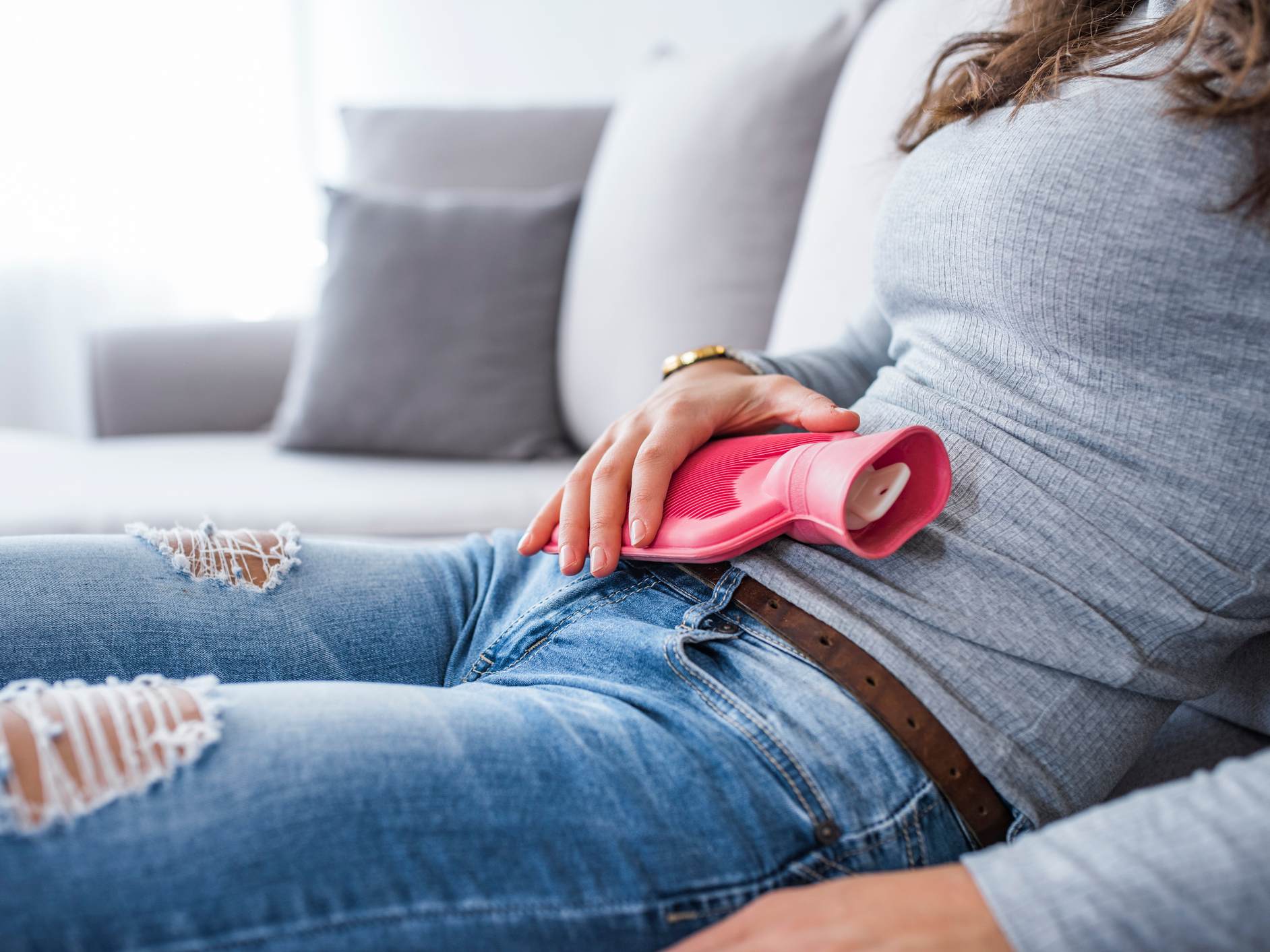- Cramping a week before your period is usually not a symptom of PMS.
- Implantation cramps feel very similar to menstrual cramps and usually occur 10-14 days after conception.
- Other reasons you may be cramping are constipation, post-coital cramping, a cyst, endometriosis, fibroids, or a UTI.
- This article was medically reviewed by G. Thomas Ruiz, MD, OB/GYN Lead at MemorialCare Orange Coast Medical Center in Fountain Valley, CA
- Visit Insider’s homepage for more stories.
Menstrual cramps are an unwelcome fact of life for many women. But menstrual cramps can strike between periods, too. Those random cramps could even be an early sign of pregnancy.
Here are some of the reasons why you may be cramping before your period.
Cramping a week before your period is probably not a symptom of PMS
About a week or two before your period starts, you might develop a cluster of symptoms collectively called premenstrual syndrome (PMS). Common symptoms include headache, moodiness, and bloating.
But cramping a week out? Not so common, according to Reza Askari, MD, an obstetrician-gynecologist in San Pedro, California. A week before your period is too early to experience premenstrual cramping, called dysmenorrhea.
Dysmenorrhea occurs when chemicals in the lining of the uterus called prostaglandins are released and cause pain. This typically happens right before menstruation begins and may carry into the first couple of days of a woman's period. "So, it would be a bit uncommon for it to [happen] seven days out," says Askari.
Implantation cramps can feel exactly like menstrual cramps
Your next period might not actually be a week away. It might be more like nine months away. The cramping you feel could be an early sign of pregnancy, also known as implantation cramping.
When a fertilized egg burrows into the lining of the uterus and sets up shop, the process is called implantation. This may cause some mild cramps, says Yvonne Bohn, MD, an obstetrician-gynecologist in Santa Monica, California. "The uterus contracts in response to implantation and causes a sensation of cramping," she says. These cramps feel very similar to menstrual cramps.
You might also experience some bleeding around this time, typically about 10-14 days after conception. Usually, the bleeding is lighter than what you'd experience during a regular period.
Of course, there are other possible culprits for your cramping:
- UTI: Urinary tract infections and bladder infections can sometimes cause some pain in your abdomen, too.
- Endometriosis: Pain is a common symptom of this condition, which occurs when the tissue that lines the uterus starts to grow outside the uterus. It often causes very painful periods for many women, but the pain can start several days beforehand, too.
- Adenomyosis: Adenomyosis occurs when endometrial tissue from the lining of the uterus begins to grow into the uterine wall. This condition doesn't always cause pain. But some women experience sharp pains in their abdomens during their periods, and some also have chronic pelvic pain that could feel like cramping. See here for more information on Adenomyosis.
- Fibroids: Fibroids are growths that develop in the uterine wall. They're usually benign, but they can cause pain and cramping.
- Constipation: Cramps or sharp pains in your abdomen could also be a sign that you're constipated. If you're feeling bloated, too, that could be a clue.
- Post-coital cramping: If you recently had sex, you might have pulled some muscles or ligaments that could be causing some cramping or pain in your pelvis or vagina. You may also experience cramping after orgasm.
- A cyst: A cyst that remains after ovulation can cause pain. "If the cyst starts to leak fluid and naturally resolve, the fluid from the cyst can cause cramping or pelvic discomfort," says Bohn. An over-the-counter pain reliever like ibuprofen or acetaminophen may help, but if not, contact your gynecologist.
- Early pregnancy cramps: If you're already pregnant and don't realize it, you could be experiencing the cramps of early pregnancy. Minor cramping is pretty normal in the first and second trimesters. But if the pain gets suddenly worsens, call your doctor right away.
The bottom line is if you start experiencing new pain, severe pain, or pain at an unusual time, you probably should get it checked out. In fact, any time you're concerned, you should contact your healthcare provider, says Askari."If you feel the pain you are experiencing is out of the ordinary for you, that's when you should come to see your doctor."
Related stories about women's health:
- Birth control pills can help treat acne, but some types are better than others
- The best diet for endometriosis that can help relieve painful symptoms
- How to treat vaginismus through dilation training and counseling
- You can get pregnant with an IUD but it's extremely rare
- What to expect after IUD removal: From prep to recovery
- How late in pregnancy can you fly: The latest and best times to fly
- Does birth control make you gain weight? Research is clear it does not
- How long it takes for condoms, birth control pills, and other types of birth control to expire
- What is a molar pregnancy and how to treat it
